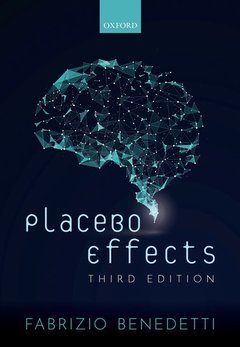Description
Placebo Effects (3rd Ed.)
Author: Benedetti Fabrizio
Language: English
Subjects for Placebo Effects:
Approximative price 126.47 €
In Print (Delivery period: 21 days).
Add to cart
Publication date: 12-2020
576 p. · 17.6x25.2 cm · Hardback
576 p. · 17.6x25.2 cm · Hardback
Description
/li>Biography
/li>
Two of the most widely used terms in medicine are 'placebo' and placebo effect, even though it is not always clear what exactly they mean. Recent progress in biomedical research has allowed a better clarification of the placebo effect. We now know that this is an active psychobiological phenomenon which takes place in the patient's brain and that is capable of influencing both the course of a disease and the response to a therapy. Placebo Effects (3e) is a significantly updated and expanded new edition of a highly successful and critically acclaimed textbook on placebos. It is the first book to emphasize that there are many placebo effects and reviews them critically in different medical conditions, such as neurological and psychiatric disorders, cardiovascular and respiratory diseases, immune and hormonal responses, as well as oncology, surgery, sports medicine and acupuncture. In addition, it looks at the psychosocial context, which is considered crucial to the placebo effect. For example what the doctor says to the patient, as well as their attitude, can greatly influence the placebo effect. Exhaustive in its coverage, and written by a world authority in the field, this is the definitive reference textbook on the placebo effect - one that is essential for researchers and clinicians across a wide range of medical specialities.
Fabrizio Benedetti received the Medical Doctor (MD) degree in 1981 from the University of Turin Medical School. In 1984, he received a Silbert International Award from the University of California in Los Angeles (UCLA). In the 1980s and 1990s, he worked in the Department of Psychiatry and Biobehavioral Sciences at UCLA and was a visiting professor in the Department of Pharmacology at the University of Texas in Dallas. He has been Professor of Physiology and Neuroscience at the University of Turin Medical School since 1999. He has been a member of the six-strong group on placebo of the Mind-Brain-Behavior Initiative at Harvard University, and a consultant for the Placebo Project at the US National Institute of Health. His current scientific interests are the placebo effect across diseases, pain in dementia, and intraoperative neurophysiology for mapping the human brain.
© 2024 LAVOISIER S.A.S.
These books may interest you

Placebo Effects 90.29 €



